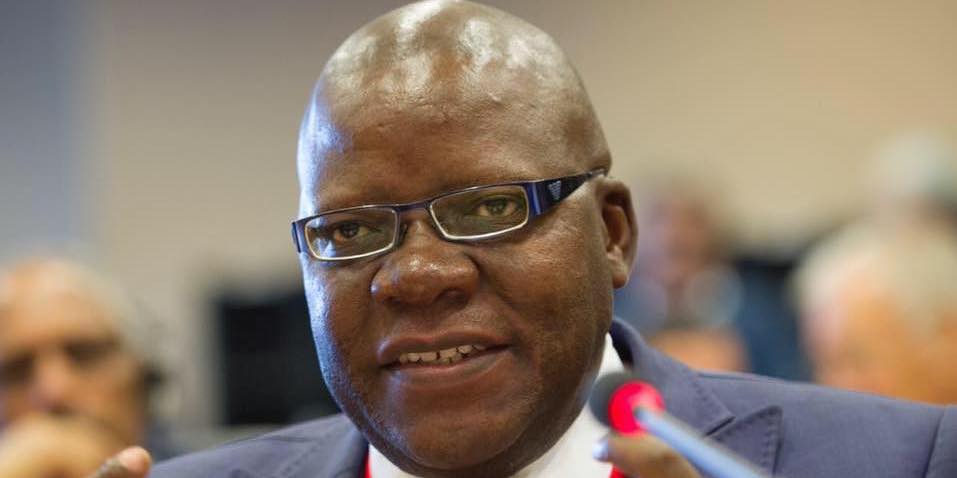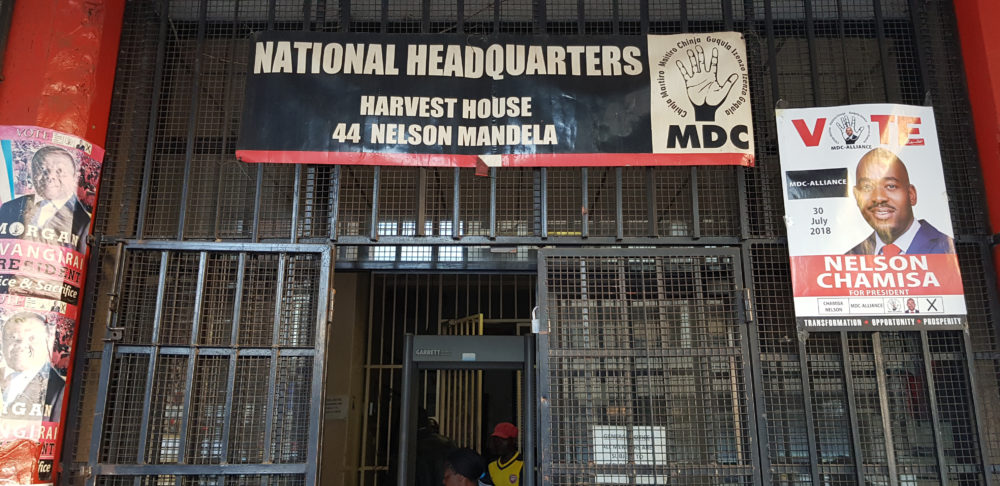News
Now What In Zimbabwe?
How might President Mnangagwa reverse this situation and achieve his plan to get the economy back on track? All true reformers have to make concessions.

On Wednesday morning opposition leader and respected former finance minister Tendai Biti attempted to flee Zimbabwe via the Chirundu border post to seek asylum in Zambia. He is accused of inciting public violence and declaring Nelson Chamisa, the leader of the opposition Movement for Democratic Change, as president over Emmerson Mnangagwa who officially won the 30 July election. How might the country make progress in the circumstances?
The return of tumult and uncertainty to Zimbabwe is the outcome of a yet another disputed election. The opposition MDC Alliance claims fraud, while the official results have a two-thirds parliamentary victory for the ruling ZANU-PF. Just 50.8% of voters were apparently in favour of the incumbent Mnangagwa, a suspiciously slim 0.8% margin, or 36,464 votes out of more than 4.7 million, needed to gain a first-round presidential victory over Chamisa.
Mnangagwa, widely known as ‘ED’, desperately needs a clear and credible victory to turn on the taps of international funding. On Twitter he said he was ‘humbled’ to have won, hailing it as a ‘new beginning’ for the country. ‘Open for business’ has been his attractive mantra, recognising that the country is desperate for foreign funds to restore its infrastructure, kickstart its economy, and alleviate its currency shortage, all of which is required to undo the ruin of Robert Mugabe’s 37-years of ZANU rule.
The election was peaceful if, in the words of the European Union’s election observers, a ‘truly level playing field was not achieved’. The results were incredible if, given the low bar, plausible. Overall it certainly is not the new democratic path that many had been hoping for and that ED had promised.
Mnangagwa needed not just a clear victory, but a legitimate process. The slowness in issuing the results and the absence of V11 voter tallies from many of the nearly 11,000 voter stations has a familiar stink. This was compounded by a lack of trust, which completely evaporated when six civilians were shot dead and many more injured by soldiers in Harare two days after the 30 July poll in a sadly familiar display of Zimbabwean kragdadigheid.
Even if Mnangagwa, the ruling party and its local and international supporters are able to dismiss the opposition’s legal challenge to the results, as is likely given Zimbabwe’s nebulous separation of powers, it’s far from certain that the election will prove enough to deal with the doubts about ZANU-PF’s intentions and bridge the mistrust that has built up over the last four decades.
In the process the election highlights a dilemma that Africa’s first generation liberation movements, which still dominate Southern African politics, are stuck with.
They want to adhere to democratic standards, not necessarily because it’s the right thing to do by their economy and their people (which it is), but because they want the legitimacy, funding and diplomatic recognition that goes with it.
But of course they don’t want to lose power. The need for its retention has so far in most cases trumped democratic niceties. The case of Zambia, and the rapid disappearance of Kenneth Kaunda’s UNIP after it lost the 1991 election, is a stark reminder to the remnants of the first liberators in Namibia, South Africa, Botswana, Angola, Mozambique and Tanzania of what can happen to those who lose the reins.
The compromise is to permit opposition parties, but to refuse to allow them the space to operate as such, including fair access to money and media along with the misuse of other resources such as, in the case of Zimbabwe, food aid for the rural poor. And bang goes even the notion, let alone the practice, of a loyal opposition to be permitted even in most cases a sniff of victory and oxygen of open debate.
Yet the election and its aftermath have undermined ED’s ambitions in at least two ways.
First, no investor worth their salt would commit assets where the rule of law is subservient to the rule of the military.
Second, in the light of the scrappy and violent outcome, it’s going to be tough for the donors to now lead with the funding urgently required to turn the economy around. The African observer stamp of approval is, in the circumstances, largely meaningless since that is not where the donor funds are. The EU, UK and the US in particular are critical in accessing both bilateral and multilateral money, including from the World Bank and International Monetary Fund.
How might President Mnangagwa reverse this situation and achieve his plan to get the economy back on track? All true reformers have to make concessions. Five stand out.
The first would be to immediately release the raw election data, postponing the presidential inauguration to allow its proper scrutiny.
The longer these granular results are delayed, the more suspect will these results seem. This move could be backed up by the establishment of a longer-term independent international commission into the elections, with the mandate to review the results and propose changes for the next event.
The second is to drop the charges against all detained MDC officials. It’s impossible to even pretend to be a democrat when the opposition is in jail.

Third, ED needs to signal a clear break from the past in his economic policies. Uncertainty will not deliver what Zimbabwe needs. The economy has to involve more than mining, which provides some liquidity for the elites clustered around government. He will have to re-establish security in the farming sector which collapsed as a result of land seizures and the simultaneous removal of title and the ability to borrow seasonal finance.
Fundamentally, investors need assurances not ambiguity.
Fourth, from Chirundu, Tendai Biti called for a proper dialogue between the government and opposition to resolve their differences. Without this, ED’s professed ‘new beginning’ threatens a false start. This could extend to the composition of the cabinet. So far it’s appeared more the ‘same old, same old’ with party hacks intermingled with military men in suits.
And fifth, President Mnangagwa needs to signal that ZANU-PF’s business as usual is finally over, and affirm the primacy of the rule of law over the military. He can achieve this dramatically by demoting General Constantino Chiwenga from his position as Vice President. Otherwise the military will continue to seem little more than a proto-government. If he means what he says about a new beginning, Mnangagwa needs to show that he, and not General Chiwenga, is in charge.
Tendai Biti was stuck in limbo at the Chirundu border-post for much of Wednesday 8 August while lawyers and the Zambian government argued whether he should be allowed asylum or even free passage to a third country. At 21:30, having been informed that he was to be deported back to Zimbabwe via Kariba to face his fate, he said to me:
‘I would not wish this on anyone. I am in God’s hands’.
The same could be said for the fate of his countrymen and women, one-third of who now live outside of Zimbabwe. It requires leadership to get Zimbabwe out of the crisis in which it is locked, and not continue to evade the responsibility to reform and the touch decisions and compromises that it demands.
This article was originally published in The Daily Maverick.


